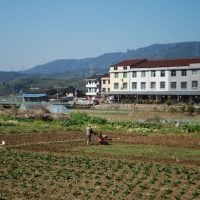Deadline: 31-Jan-24
The Australian Embassy in the Philippines is pleased to announce a call for proposals for Direct Aid Program for the 2023-24 financial year.
The Direct Aid Program (DAP) is a flexible small grants program funded by the Australian Government and managed through the Department of Foreign Affairs & Trade (DFAT) overseas posts. The program aims to support projects with a strong development focus that complement Australia’s broader aid program which contributes to sustainable economic growth and poverty reduction. DAP projects should promote a distinctive and positive image of Australia.
Priority Sectors
- The proposed project/activities should prioritise the participation and respond to the needs of the of the following sectors:
- disadvantaged children and women
- people with disabilities
- indigenous peoples
- the elderly
- displaced peoples due to conflict and natural calamities
- members of the LGBTQI community
- the poorest and/or most vulnerable groups, and,
- the environment/climate change
Funding Information
- DAP provides grants of up to PhP1 million per approved project with a 6–12-month implementation period.
- Approved projects are expected to commence implementation immediately.
Activities
- DAP activities should primarily be aimed at achieving immediate practical and tangible outcomes of high development impact, including capacity building programs in the areas of governance and human rights engagement. In the Philippines, DAP will continue to support activities that align with Australia and Philippine government objectives to promote prosperity, stability, and resilience. It will prioritise the following activities for funding:
- promoting climate change and disaster resilience including adoption of innovative
- solutions and equitable use of renewable resources for community-based water,
- irrigation, and energy systems
- income generation and sustainable livelihoods to help marginalised groups, especially disadvantaged women, to participate in economic activities
- provision of community learning facilities and educational or occupational/skills training
- promoting access of vulnerable groups to nutritious, safe, and sustainable food supply
- provision of community water and sanitation facilities to promote hygiene and prevent disease outbreaks
- sporting activities to promote youth development, particularly empowering girls and women
- environmental / biodiversity conservation.
- Initiatives that address gender equality, disability, and social inclusion, as well as those that promote locally-led solutions/innovations to development challenges area most welcome.
- The DAP will also strongly support projects that address cross-sectoral needs and those that meet multi-sectoral/thematic objectives.
Eligibility Criteria
- The DAP is available on a not-for-profit basis to NGOs and community organisations engaged in development activities in the Philippines that are eligible for official development assistance (ODA) and primarily managed by Filipinos and registered with the Securities and Exchange Commission (SEC), the Cooperative Development Authority (CDA), or the Department of Labor and Employment (DOLE).
Criteria
- Successful proposals must meet the following criteria:
- have a development focus and benefit the local community. Priority is given to innovative and creative projects that catalyse further development in the community.
- directly meet specific needs of vulnerable groups.
- have achievable, practical, and tangible results by the end of the implementation period that are sustainable.
- there is a commitment on the part of the local community to support the project and sustain them.
- proponent and partner communities provide substantial counterpart contribution/resources, either in the form of labour, technical support, administrative cost, materials, existing assets, or cash. There should be evidence of capacity to sustain recurrent costs associated with the project during implementation and beyond.
- appropriate institutional arrangements are in place through the proponent organisation, partner community/people’s organisation, and partnership with the local government and the private sector.
- proponent can demonstrate that it can provide reliable project reports in a timely manner, and integrate gender, child protection, social inclusion, and environmentally sound practices in project implementation.
Ineligible
- Generally, the following items are not funded:
- salaries of permanent staff of the implementing organisation
- fees for consultants and advisors, where they constitute a major cost component
- grant programs run by other government organisations
- micro-credit schemes or any other project that involves return of money or loans for cash
- administrative costs not directly related to project implementation
- international travel as part of the project
- Australian or overseas study tours
- purchase or rental of property or land
For more information, visit Australian Embassy in the Philippines.









































